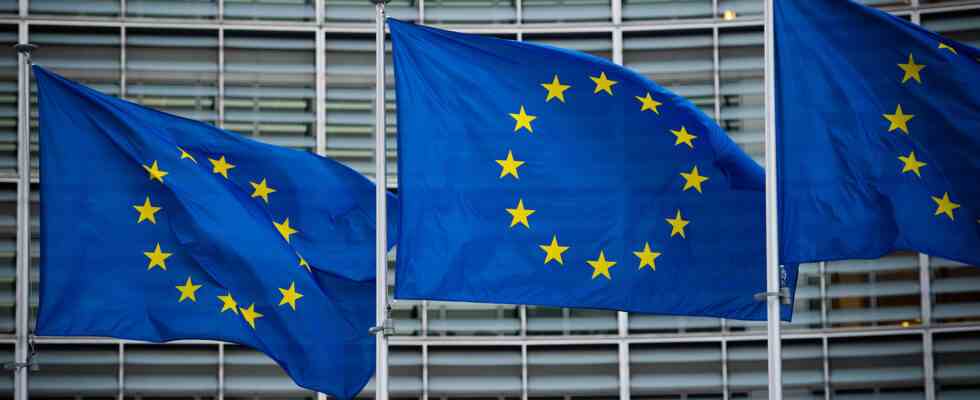Status: 04/30/2022 3:19 p.m
For more than a year, representatives of the member states, the European Parliament and the EU Commission have discussed with citizens how the EU can become more capable of acting. Now they presented the result.
Standing applause at the end of a long journey. The conference on the future of Europe has agreed on a final declaration – and the large majority is clearly satisfied with the result. How can Europe become more capable of acting, and what issues should the EU deal with?
For more than a year, representatives of the member states, the European Parliament and the EU Commission discussed this intensively with 800 randomly drawn citizens – for example with Julia Eichberger from Vienna, who campaigns for more solidarity, equal opportunities and social justice: ” The EU was founded as an economic union. It is very important to the participants at the conference that the EU as a welfare state is strengthened and protected in the future.”
Crises show a need for reform
The work was first overshadowed by the corona pandemic, then by the Ukraine war. The current crises show that the EU must evolve and revitalize the values of its founding fathers with the reform ideas if our beautiful continent is to survive,” says the co-chair of the conference, Belgian Liberal Guy Verhofstadt.
The conference agreed on 325 concrete proposals. Among other things, she demands more climate protection, European minimum wages, sustainable agriculture, greater powers for Brussels in health policy or more joint investments in the future, which are financed with joint debts.
It is also about a number of ideas that have long been on the wish list of the pro-Europeans in the EU Parliament, such as the right to start legislative processes – which has so far been reserved for the EU Commission. Or the demand to replace the unanimity principle with majority decisions and thus abolish national vetoes.
Amendments to the EU treaties necessary
For this – and for many other proposals as well – the EU treaties would have to be changed. A European constitutional convention should pave the way for this. However, this is met with skepticism in many member states. Hajnalka Juhasz, representative of the Hungarian parliament, already considers the final declaration unacceptable: “Unfortunately, despite our warnings, the abolition of unanimity remained part of the proposals and that is the main reason why this declaration is unacceptable.”
The right-wing conservative group in the European Parliament, which includes the Polish ruling party PiS, left the future conference in protest at the final paper and considers the entire process a failure. However, the vast majority of MEPs sees it differently. On May 9, Europe Day, the final declaration of the conference will be handed over to the incumbent EU Council President, French President Emmanuel Macron, EU Commission President Ursula von der Leyen and EU Parliament President Roberta Metsola.
EU institutions have the last word
After that, the leadership of the European Union must decide whether the proposals and demands will become concrete policies – just as the representatives of the citizens expect, for example the Bonn student Greta Adamek: “They invited us and asked us,” she says. “Our answers are clear and are on the table. You can ensure that we European citizens have more in common than politicians who cannot agree. Don’t disappoint us.”
Making Europe better: EU future conference decides on reform proposals
Stephan Ueberbach, ARD Brussels, April 30, 2022 2:42 p.m

